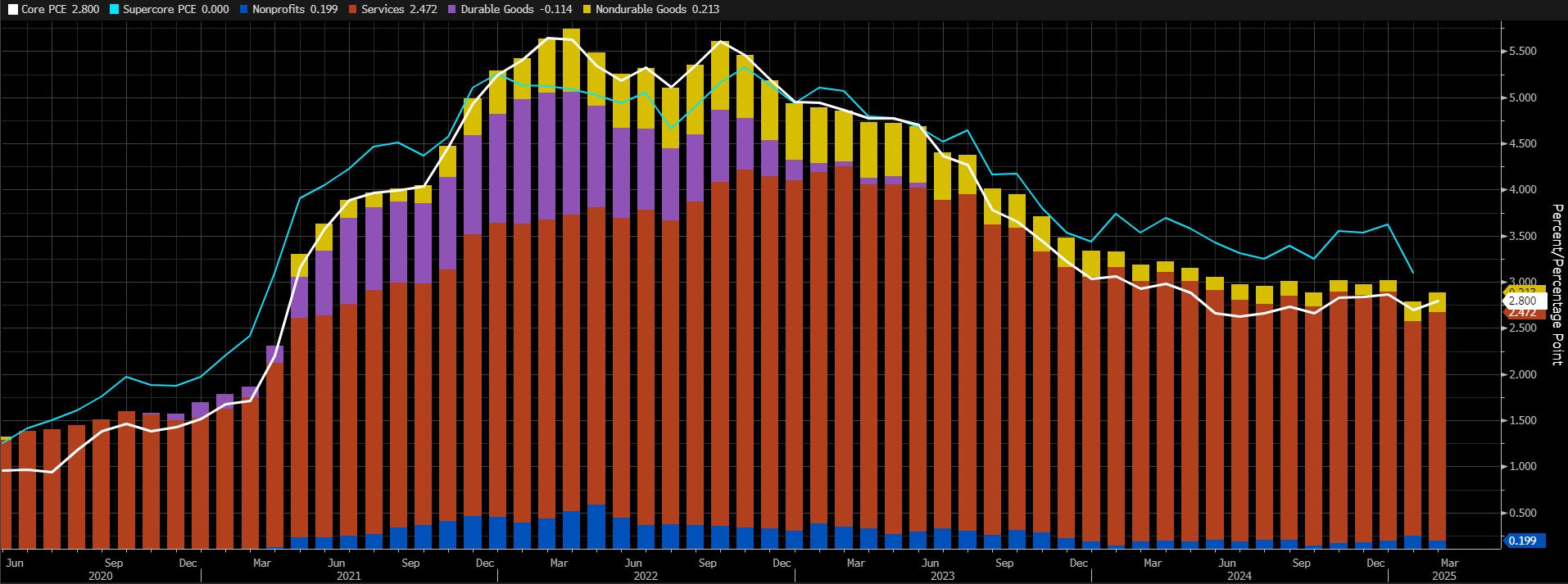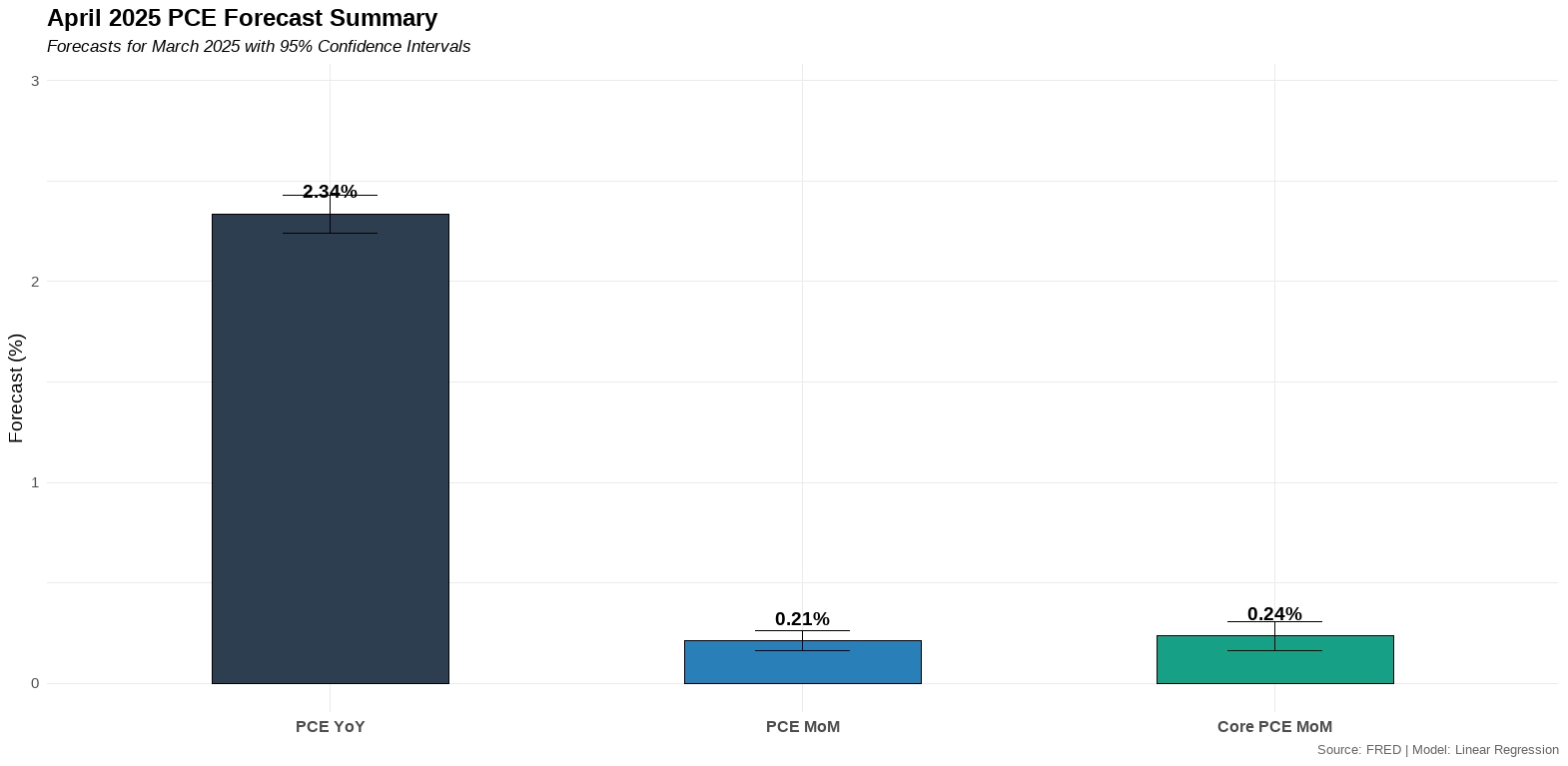MARKET COMPASS
Critical Data and Tariff Agenda
- Global markets will focus on other important US data releases today ahead of the critical employment data on Friday. There is an expectation that the US economy may have grown between -0.2% and 0.2% in the first quarter of the year.
- In addition, the financial statements of major technology companies such as Meta and Microsoft will be closely monitored today.
- US President Donald Trump has signed a decree that includes some exemptions to soften the impact of auto tariffs.
- After the Asian session, European stock markets and Wall Street futures also followed a flat to mixed outlook.
- Major digital assets continue to record near flat price changes in line with the outlook for the global climate. Potential news flow on the tariff agenda, as well as macro indicators that may provide insights on the health of the US economy, may cause price changes to accelerate.
ADP Non-Farm Employment Change; shows the estimated change in the number of people employed in the previous month, excluding the agricultural sector and government, by analyzing payroll data from more than 25 million workers to obtain estimates of employment growth by Automatic Data Processing, Inc (ADP). It usually gives a hint of employment growth 2 days before the employment data released by the government. Usually, lower-than-expected ADP data has a positive impact on digital assets.
FED’s Favorite Inflation Indicator PCE
US Federal Reserve Chairman Powell’s speech at the Jackson Hole Symposium last year led to a significant shift in the equation. Powell shifted the focus from inflation to the strength of the labor market and signaled that the FED would now give more importance to the strength of the labor market in its decisions. Or, at least, that is how the markets interpreted his statements at the time. Recent months have shown that this may not be the right approach.
Source: Bloomberg

For March, we will evaluate the annualized core Personal Consumption Expenditures (PCE) data. In January, the index came in at 2.6% (revised to 2.7% in the latest report), down from 2.9% in December (2.9% in December) due to the impact of the services sector, returning to the June 2024 level of increase. Finally, in February, it pointed to a change of 2.8%, exceeding market expectations. The increase in prices in the service sector compared to the previous period seems to have caused inflation to rise again in February.
Source: FRED and Darkex Research Department

When we look at the headline PCE Price Index, we see that the 2.6% in December came down to 2.5% in January and February. Our forecast for March is 2.34%. In other words, the rate of increase in prices will remain limited and we will feel the impact of Trump uncertainty. You can see our monthly forecasts in the table above.
A higher-than-expected data may support expectations that the FED will maintain its cautious stance on interest rate cuts, reducing risk appetite and putting pressure on digital assets. A lower-than-expected data may have the opposite effect and pave the way for value gains.
US GDP Change
Donald Trump’s unpredictable policy choices are a challenging factor for the entire world. Economic actors are also facing the challenges of this highly uncertain environment as they formulate their expectations and plans for the future. There are some outcomes of this situation. The most important one is the possibility of a slowdown in economic activity. In this respect, it will be very important to see how much the US economy grows in the first quarter of the year, including the period after January 20, when Trunp takes over in the Oval Office.
Source: Bloomberg

According to data released on March 27, the US economy grew by 2.4% in the last quarter of 2024. The previous estimate was 2.3% and a small upward revision was made. Our expectation for the new data, which will be important in terms of being the first data to be announced for the first quarter of the current year, is that we will not see a growth rate as low as the consensus (30.04.2025 – Bloomberg Median Estimate: -0.2%). However, it is worth noting that the risks in this forecast are downside. This is because the monthly frequency data on consumer spending, which accounts for about 70% of the US economy, published in the relevant quarter pointed to a deterioration in consumer confidence. It seems difficult to quantify and measure this behavior at the moment. The data to be released will allow for healthier and longer-term projections regarding the direction of economic growth.
In terms of immediate market reaction, we think that a data above the consensus expectation may have a positive impact on digital assets by increasing risk appetite. A lower-than-expected GDP data, on the other hand, may have a negative impact from this perspective.
Digital Compass
In the US, the locomotive of the world economy, we consider the strategic crypto reserve, which started with Trump’s nomination process, as a very important development. However, the fact that the markets had already priced in the “best case scenario” before and after the US elections and the “less than perfect” news on this issue put pressure on digital assets. We continue to keep the strategic reserve issue in our equation as a positive variable for cryptocurrencies in the long run. On the other hand, we think that there is no new news flow that will create pressure in the medium term, there will not be a development that will create enthusiasm in the crypto market, and concerns that global economic activity may slow down in global markets, especially with Trump’s tariffs, will gradually decrease. Accordingly, we soften our view that “pressure may continue in the medium term” and align it with our long-term bullish outlook. In the short term, markets will continue to be sensitive to macro indicators and tariff developments.
For a detailed review of our twice-daily technical analysis report and the latest developments in digital assets click here.
*General Information About Forecasts
Forecasts for the macroeconomic data presented in this report are based on econometric modeling tools developed by our research department. Different structures were considered for each indicator, and appropriate regression models were constructed in line with data frequency (monthly/quarterly), leading economic indicators and data history.
The basic approach in all models is to interpret historical relationships based on data and to produce forecasts that have predictive power with current data. The performance of the models used is measured by standard metrics such as mean absolute error (MAE) and is regularly re-evaluated and improved. While the outputs of the models guide our economic analysis, they also aim to contribute to strategic decision-making processes for our investors and business partners. Data is sourced directly from the FRED (Federal Reserve Economic Data) platform in an up-to-date and automated manner, so that every forecast is based on the latest economic data. As the research department, we are also working on artificial intelligence-based modeling methods (e.g. Random Forest, Lasso/Ridge regressions, ensemble models) in order to improve forecast accuracy and react more sensitively to market dynamics. The macroeconomic context should be taken into account when interpreting model outputs, and it should be kept in mind that there may be deviations in forecast performance, especially due to economic shocks, policy changes and unforeseen external factors. With this monthly updated working set, we aim to provide a more transparent, consistent and data-driven basis for monitoring the macroeconomic outlook and strengthening decision support processes.
HIGHLIGHTS OF THE DAY
Important Economic Calender Data
| Time | News | Expectation | Previous |
|---|---|---|---|
| 12:15 | US ADP Nonfarm Employment Change (Apr) | 115K | 155K |
| 12:30 | US Employment Cost Index (QoQ) (Q1) | 0.9% | 0.9% |
| 12:30 | US GDP (QoQ) (Q1) | -0.2% | 2.4% |
| 14:00 | US Core PCE Price Index (MoM) (Mar) | 0.1% | 0.4% |
| 14:00 | US PCE Price Index (MoM) (Mar) | 0.0% | 0.3% |
| 14:00 | US Core PCE Price Index (YoY) (Mar) | 2.6% | 2.8% |
| 14:00 | US PCE Price Index (YoY) (Mar) | 2.2% | 2.5% |
| 14:00 | US Pending Home Sales (MoM) (Mar) | 1.0% | 2.0% |
INFORMATION:
*The calendar is based on UTC (Coordinated Universal Time) time zone. The economic calendar content on the relevant page is obtained from reliable news and data providers. The news in the economic calendar content, the date and time of the announcement of the news, possible changes in the previous, expectations and announced figures are made by the data provider institutions. Darkex cannot be held responsible for possible changes that may arise from similar situations.
DARKEX RESEARCH DEPARTMENT CURRENT STUDIES
Darkex Monthly Strategy Report – April
Trump’s Tariff Move and Europe’s Response: From Tension to Consensus in the Transatlantic…
Trump’s 2025 Tariffs: Global Economic Destruction and Potential Trade Recession Impacts on the US
Ripple’s Hidden Road Acquisition: The Beginning of a New Era for
GameStop’s Bitcoin Acquisition Plans and its Strategic Transformation
Digital Collecting, Regulation and Opensea’s Request
Click here for all our other Market Pulse reports.
Legal Notice
The investment information, comments and recommendations contained in this document do not constitute investment advisory services. Investment advisory services are provided by authorized institutions on a personal basis, taking into account the risk and return preferences of individuals. The comments and recommendations contained in this document are of a general type. These recommendations may not be suitable for your financial situation and risk and return preferences. Therefore, making an investment decision based solely on the information contained in this document may not result in results that are in line with your expectations.


